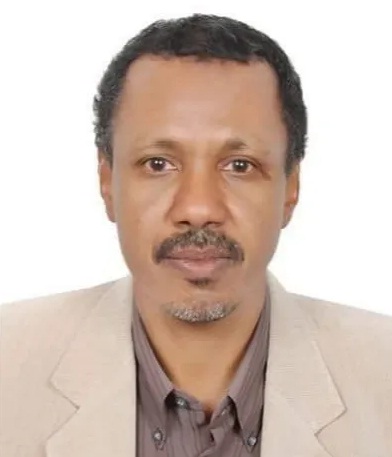Al-Amamra’s Plan, Resilience Options, and the Absence of Government

Dr. Ibrahim Al-Siddiq Ali
The voices of the Samood (Resilience) faction, Qaht, and the Rapid Support Militia have risen in protest over a single tweet by the UN envoy, in which he expressed his appreciation for the roadmap presented by the government.
Wajdi Saleh objected, accusing Al-Amamra of departing from democratic principles. Khaled Youssef criticized the UN envoy’s stance and lack of neutrality. Pasha Tabeq expressed similar sentiments in an even cruder manner, and Babiker Faisal also spoke along the same lines. I do not wish to detail their statements but rather highlight the following conclusions:
- These political forces—whether allied with the Rapid Support Militia or opposing the government—are united in their political objectives, regardless of their locations, names, or classifications. Their positions are identical. Even on a minor issue such as this, their numerous tweets were uniform in language and direction. This proves that there is no real difference between those sitting in Nairobi or Addis Ababa. The most telling sign of this alignment is Samood’s failure to take any action against political leaders who signed agreements with the militia.
- The second point is their heavy reliance on external forces to shape their positions and exert pressure. This tweet was clearly intended to influence Al-Amamra and other European parties and organizations to pressure him, indicating a well-orchestrated plan.
- The third point is that these forces perceive any alternative political direction as a threat to their existence. Their exclusionary mindset dominates their approach. Al-Amamra worked with them in Geneva for four months—from August to December 2024—pressuring the government without any concrete action plan. Even last week in Addis Ababa, he excluded 15 political movements that are more influential and present than Samood and its allies. Yet, the mere mention of an alternative political plan is considered an unforgivable offense.
- The fourth point concerns shaping a public perception that democracy and civilian rule mean only the return of this particular group to power. However, this faction has fractured into seven different groups and has been dissolved multiple times, yet it continues to claim legitimacy. Didn’t the Communist Party and its allies break away to form the Radical Change faction? Didn’t a large segment split under the name Forces of Change or the Group of 12? Didn’t Qaht dissolve entirely and get replaced by Taqaddum? And wasn’t Taqaddum later dissolved and replaced by Samood?
- The fifth point is the attempt to mislead and distort facts. These voices have not explained how the government’s roadmap contradicts democracy, given that it explicitly calls for transparent elections. Perhaps their definition of democracy is that they alone hold the mandate to market and manipulate it.
On another note, where does the government stand in all these political interactions? Why should it blame the UN envoy if its own partners remain silent in these debates? This is a critical moment for the government to speak out through a specialized team with expertise in framing events and narratives. Merely watching from the sidelines or being preoccupied with other repercussions is not enough.
It was clear from the outset, as we anticipated, that the February 8, 2025, meeting in Port Sudan and Al-Burhan’s speech were intended to promote the official roadmap while sidelining national figures from the political scene.
However, securing a clear and cohesive vision of this roadmap remains challenging. Right now, it seems more like a collection of fragmented points rather than a structured plan. The government and its partners must address this by publicly presenting the roadmap and engaging in discussions about it.



